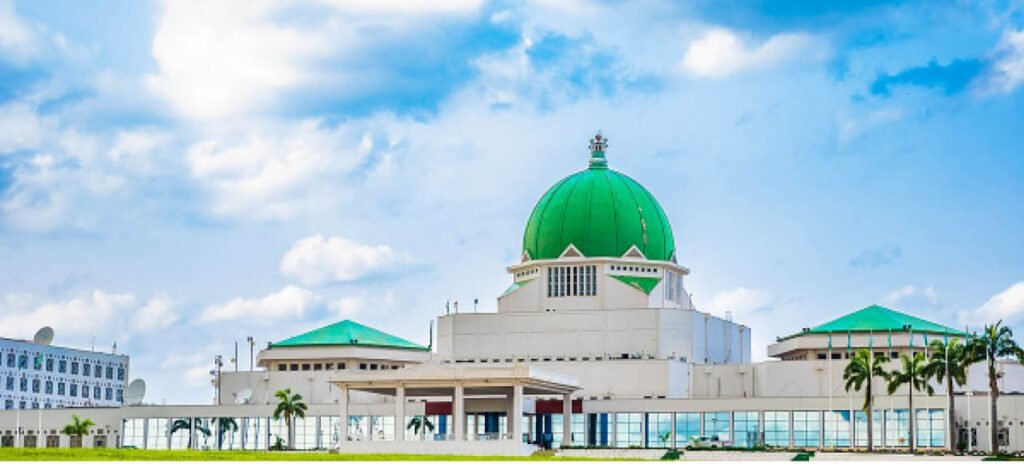Three economists were honored this week for “demonstrating the importance of social institutions to a nation’s prosperity.” Thus, the Nobel Committee of the Royal Swedish Academy of Sciences announced in Stockholm the selection of the work of Daron Acemoglu, Simon Johnson and James A. Robinson for the 2024 Nobel Prize in Economics.
Their work on poverty is relevant to Nigeria today as the country struggles with poverty. To solve the problem, we must change the systems that foster poverty. Through their research, these people established an indisputable correlation between a country’s prosperity or poverty and its political structure. They argued that whether a nation becomes poor or rich depends on its political structure and the economic institutions established on the basis of that structure.
Acemoglu and Robison's seminal book Why Nations Fail: The Origins of Power, Prosperity, and Poverty determines why some countries are rich while others, and even their neighbors, are poor. It is clearly made clear. The formula for enrichment, so succinctly revealed by an analysis of their national structure, history, and trajectory, is inclusivity.
Sponsored ads
These economists argue that countries that practice inclusiveness in their national economic structures are more likely to become wealthy. The word “argument” is used here in its original sense: a claim supported by evidence.
The authors argue that a central theme of the book is that “economic growth and prosperity are associated with inclusive economic and political institutions, but extractive institutions typically lead to stagnation and poverty.” It is declared that there is. However, they explain that this does not mean that extractive institutions can never generate growth, nor does it mean that extractive institutions are created equal.
Their evidence supports the fact that economic success or failure differs because of differences in countries’ institutions, the rules that influence how their economies work, and the incentives that motivate people. This simply refers to the role that political economy plays in the material existence of the state.
To support this claim, they give examples that cannot be contradicted. One is the difference between South Korea, North Korea, and South Korea. The north is poor while the south is rich, and the difference can only be explained in terms of political structure. “Inclusive economic institutions create inclusive markets, giving people not only the freedom to pursue the career in life that best suits their talents, but also a level playing field that allows them to do so.” they declare.
While Acemoglu and Robinson were working on Why Nations Fail, Acemoglu and Johnson published another book, Power and Progress: Our Millennium Struggle for Technology and Prosperity. The book also explores the phenomenon of inequality and warns that modern advances in the field of technology may exacerbate inequality rather than solve problems.
Taken together, these two books illustrate the economist’s argument that a country’s political economy is responsible for its economic structure. Extending this argument further means that individuals, households, or groups benefit from economic structures depending on their position within them. Place here is not spatial.
Rather, it is the fact that in any given situation, the underlying political structure creates the economic structure of that society, which in turn influences the economic structure. This is because the political structure determines the institutions that influence it. It is these institutions that determine how the economy functions.
Therefore, to discuss political economy is simply to talk about the confluence of economic and political structures in a nation. This includes examining the ownership and management of resources, the production of goods and services, and ultimately the appropriation of profits arising from these activities.
This is perhaps Nigeria’s most pressing need at this time. Indeed, if there is one aspect of Nigerian society that needs urgent improvement, it is the country’s political economy. Doing so would free the economy from the inscrutable forces that bind it and free it for growth. It would diffuse the ambiguity currently shrouding the economy and skew its benefits in favor of a few. This will transform the Nigerian system from an “exploitative society” to an “inclusive society,” as Acemoglu and Robinson pointed out. It would unlock the productive potential currently latent in the Nigerian system.
President Bola Tinubu stated this in his Independence Day speech: “We remain determined to implement the Supreme Court’s decision on local government fiscal autonomy as part of our efforts to reshape our political economy.”
However, the question arises whether it is possible to redesign Nigeria’s political economy. Given the level of political hegemony that characterizes the economic structure of this country, even small changes to the makeup of our system will require real efforts.
Indeed, achieving the intended objective of redesigning Nigeria’s political and economic structure will require an uphill battle as those who may be adversely affected are extending their tentacles to the most important places. Dew. The fights that have erupted in some states over the election of local officials only indicate that the problem is deep-rooted. But if you have the will power somewhere, it’s possible.

